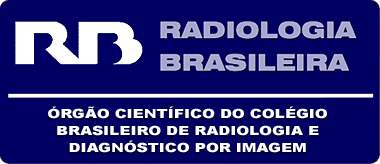Gadolinium-based contrast agents are much safer than the iodinated ones; however complications may occur and should be recognized for appropriate orientation and management. The total incidence of adverse reactions to contrast agents in magnetic resonance imaging ranges between 2% and 4%. Cases of severe acute reactions to gadolinium, such as laryngospasm and anaphylactic shock, are rare. Chronic complications secondary to the use of gadolinium also can occur and, recently an association between its use and a rare dermatologic disease occurring in patients with renal failure has been reported. Nephrogenic systemic fibrosis was the subject of an official health notification issued by the American Food and Drug Administration. This progressive disease is characterized by hardened skin with fibrotic nodules and plaques which may involve other parts of the body. Patients who have been affected by this disorder presented chronic renal failure, with metabolic acidosis and had been submitted to magnetic resonance angiography, probably involving exposure to large amounts of intravenous paramagnetic contrast. This review is aimed at presenting a succinct description of the gadolinium-based contrast agent types, possible secondary complications, their preventive measures and management.
Magnetic resonance imaging; Gadolinium; Adverse reaction

